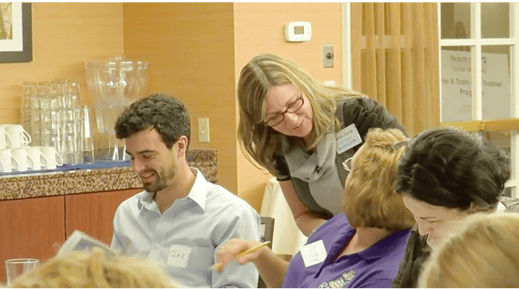
Today's post is our final in our "Tips for Enhancing Your Training Skills" blog series. In these posts, we will delve deeply into the fundamentals of essential training skills. This blog series, filled with tips from our training team’s collective years of experience delivering CLASS observation trainings to diverse audiences from around the country and the globe, will provide you with tangible ideas about how to be a more successful trainer.
If you are thinking to yourself, “Wait a minute. I’m the CLASS expert; my participants are just learning the CLASS. How can they help me?” I invite you to think again. Adult learners are a lot like children in that sometimes a peer can explain something in a better way than we can. Maybe it’s hearing the information in a slightly different way, but there are times when someone else really can help a colleague have that “aha” moment when we aren’t being successful. I still remember trying to figure out how to teach a child in my class to put on his winter jacket so it wasn’t upside down and backwards, when another child said, “Miss Sarah, here’s how you do it.” And the child was right. His explanation was much simpler than mine.
There are several things you can do to “use” the other participants to help you justify the master codes:
- When someone asks a question, ask if someone else in the group knows the answer. Sure, you know the answer, but it’s good for others to show that they know the answer as well. It breaks up the monotony of your participants having to listen to you for two days (sorry, but it’s hard to listen to anyone for two days no matter how dynamic they may be).
- Having someone else answer the question correctly can be a morale booster for the person who got it right, but it can also be reassuring for the other participants. A lot of people struggle to learn the CLASS and seeing that a colleague, who is also new to the tool, is getting it, helps others think that there is hope for them as well.
- You can also enlist your participants’ help if someone poses a question that you aren’t 100% certain about. You can say, “That’s a great question. Let’s look that up in the manual.” This buys you a little time to look for the answer and also models the importance of anchoring your observations in the manual. And by the way, this strategy also works when you know the answer.
I hope that this series on Enhancing Your Training Skills has been helpful. As always, please share any tips you have learned to make trainings go well and let us know if you have any topics you would like for us to address.
Happy Training!

